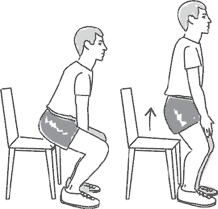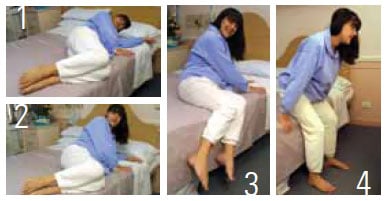Our good friend, and amazing pelvic floor specialist, Beth Albert has some great tips on recovering from a c-section birth:
Every delivery is a whirlwind with seemingly endless information thrown at you. Whether your c-section was planned or not there are some pretty simple guidelines to follow that will help make your immediate and long-term recovery as safe as possible. The following is a short explanation of what a c-section is and some body mechanics to follow to help keep your healing on track.
During a c-section, an incision is made in the lower abdomen of the mother through the skin, fascia and uterus. After the baby is delivered it is stitched back up. Although relatively common, this is considered major abdominal surgery and as a busy, new mom it is important that you take care of yourself and your body so that you heal properly.
Tips for Recovering From a C-section
Please follow the advice of your healthcare provider
- Try to minimize the amount of pressure in the abdomen (intra-abdominal pressure) so this means:
- Avoid lifting anything heavier than your baby
- When you do lift, do so on an EXHALE
- Avoid any sit-up motions ie. Sitting straight up from bed
- Practice good posture right away. Although you may not feel like it, try to get out of a slouched position and keep your shoulders back
- When nursing, bring your baby to you (use pillows to prop them up), don’t bring you to the baby
2. When getting up from a sitting position, get your feet underneath you, your shoulders over your feet and use your body and gravity to get up (don’t use your core to move)

3. When getting out of bed (yes, even through the night), roll to your side, plant your feet and stand up like the photo below. To lay down, do the steps in reverse.

4. Move but nothing crazy. Keep things very low impact. It’s important that you do move once you’ve been given the ok by your doctor. Gentle movement helps bring blood flow to the area, which helps with healing. The tricky thing is we use our cores for EVERYTHING and if you use it too much you do risk tearing the incision. Slow walking on an even surface to tolerance can help with that.
5. Ask for help. THIS IS BIG. Everything we do uses our core so ask for help with normal house things such as laundry, emptying the dishwasher, cooking and cleaning. Remember that in order for you to take care of a baby, you need to take care of yourself.
Remember that these guidelines are temporary and are not long-term. Let your body heal so that you have a strong base to build strength and endurance. Remember that a building is only as strong as its foundation and that goes the same for your body. After you get the go-ahead from your healthcare provider, start slowly and be patient. If you have questions, contact a pelvic floor physiotherapist in your area that can help during the healing phase and after.
Beth Albert Halford is a registered pysiotherapist practicing in Kitchener-Waterloo, Ontario. She owns KW Pelvic Health, a pelvic floor focused clinic. She can be reached at beth@kwpelvichealth.com if you have any questions or comments.
